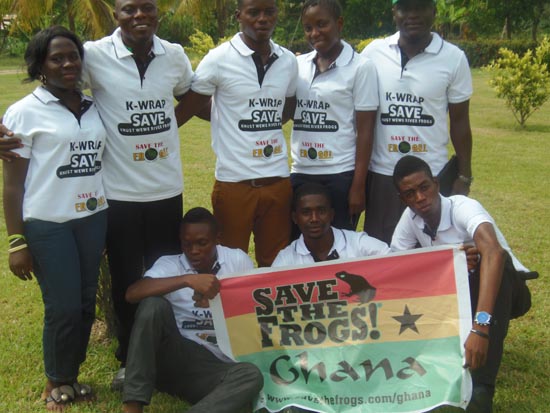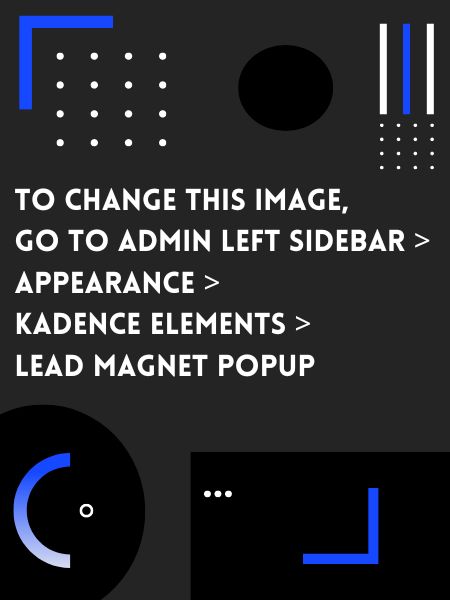The SAVE THE FROGS! Ghana KNUST Wewe River Amphibian Project (K-WRAP) program has been saving frogs and habitat along the Wewe River in Kumasi since 2014, which has led to important advances in protecting the local amphibian population and promoting the involvement of local communities to participate in conservation.
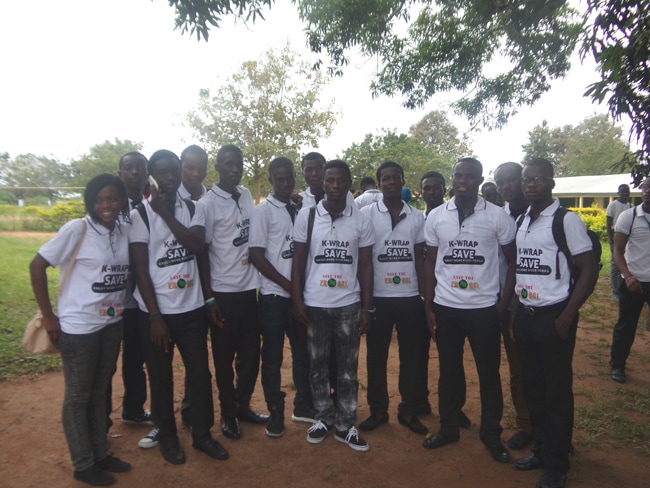
The value of the KNUST Wewe River Amphibian Project (K-WRAP), led by SAVE THE FROGS! Ghana Volunteer Kojo Kwakye Ofori-Amanfo, was recognized in 2017, when it was granted £5,000 (~$6,000) in research funding from the UK-based conservation charity called The Rufford Foundation. To date, this Foundation has awarded grants to over 4000 projects in 156 countries, but it is especially interested in projects that have a significant and long-lasting impact. K-WRAP certainly fits this line of thinking, with its initial 12-month schedule eventually being extended by an additional 6 months to maximize its positive ecological and conservation impact.
Understanding and protecting frog habitats
The KNUST campus stretch of the Wewe River is characterized by polluted, fragmented and degraded forests, which made the task of amphibian surveys and monitoring challenging. Nevertheless, 20 amphibian species were recorded in this area and eight of these species were discovered as new to the site. K-WRAP is the first project to have recorded such a high number of new frogs at the site since 2011. This outcome is hugely important, given that the Wewe River area is ranked by ecologists as among the world’s 34 biodiversity hotspots. Looking further ahead, these results will provide an important baseline which can be used for further environmental health studies.
Another success was the establishment of habitat corridors. A total of 1,200 native trees were planted in critical breeding sites along the Wewe River. This will serve to increase species’ habitat size and establish vegetation corridors within their ranges. As well as improving the breeding prospects, these habitat corridors may reduce the exposure of threatened amphibian species to the negative effects of the region’s climatic changes.
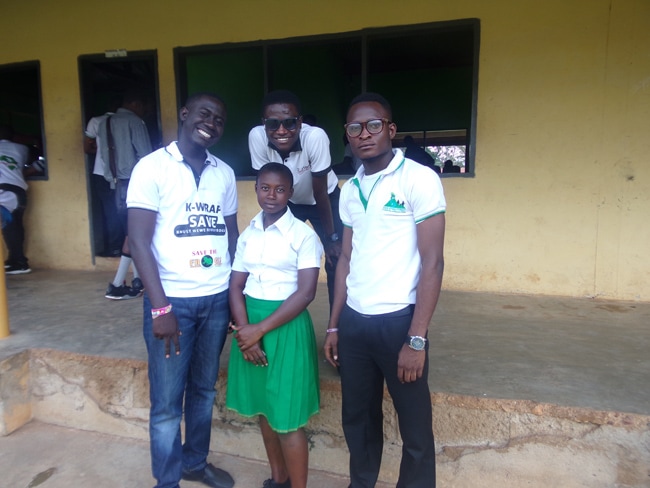
Partnering with the local community
Critical to the longstanding impact of any conservation project is engagement of the local community. K-WRAP has been an outstanding success in increasing community involvement and environmental awareness. Local community folks have been involved at every stage of the project, with over 2,000 benefiting from the awareness campaigns and training. For example, this included local people being trained for nursery establishment and tree planting and removing plastic waste which had choked and compromised the quality of the Wewe River.
K-WRAP also generated interest further afield, thanks to blogs and articles posted as part of SAVE THE FROGS! Ghana’s Ghana Online Amphibian Literacy (GOAL) Project. A particularly popular article concerned the Night Spirit Frog (Leptopelis spiritusnoctis). This beautiful amphibian is considered Ghana’s most beloved frog and has inspired artists and frog lovers across the world.
Educational campaigns centering on four local schools (Ayigya, Ayeduase, Kotei and Weweso) also helped publicize K-WRAP. Through live presentations and the launch of essay/art competitions, children were able to learn more about the project and what they could do to help protect frogs. Similarly, a series of video shows, audio broadcasts and opportunities for one-on-one interactions with local SAVE THE FROGS! Chapter members helped engage others in the local community to protect amphibians in their habitats.
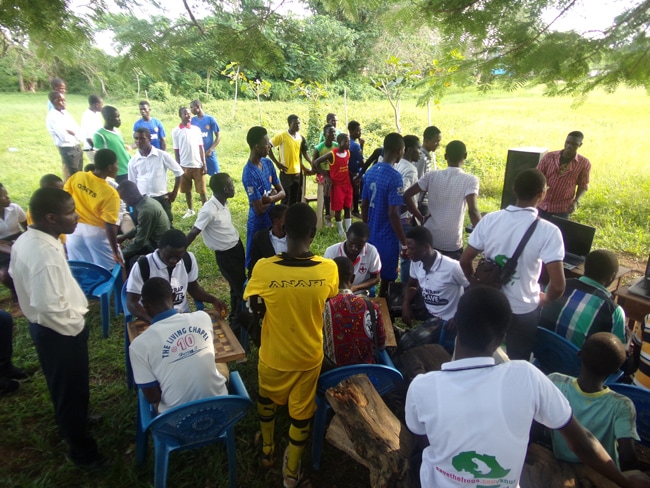
Just the start for a frog-friendly future
Although K-WRAP has achieved its original goals, the team is hopeful of continuing the progress made. As only a few of the amphibian species recorded at the site could be featured in general publicity efforts, there are plans to widen public understanding of the remainder, including the eight newly recorded species. If funding can be secured, then further surveys will also provide an opportunity to monitor amphibian population prior to recovery of degraded critical habitats. Sharing the results of K-WRAP will continue to be important and the team are looking to publish more articles, technical reports and give presentations at conferences.
The KNUST Wewe River Amphibian Project (K-WRAP) promotes a frog-friendly future for Ghana’s amphibians. Please support our ongoing frog saving efforts in Ghana: donate today through the dedicated SAVE THE FROGS! Ghana donation page.
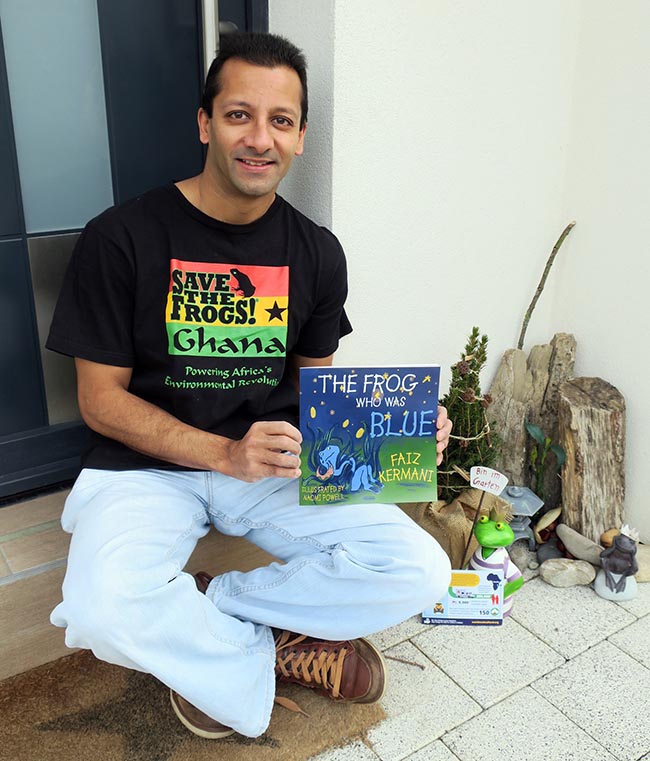
The K-WRAP is just one example of the progress being made in Ghana to protect amphibian populations and inspire the next generation of frog conservationists. Read a lot more articles about SAVE THE FROGS! Ghana’s efforts here.


